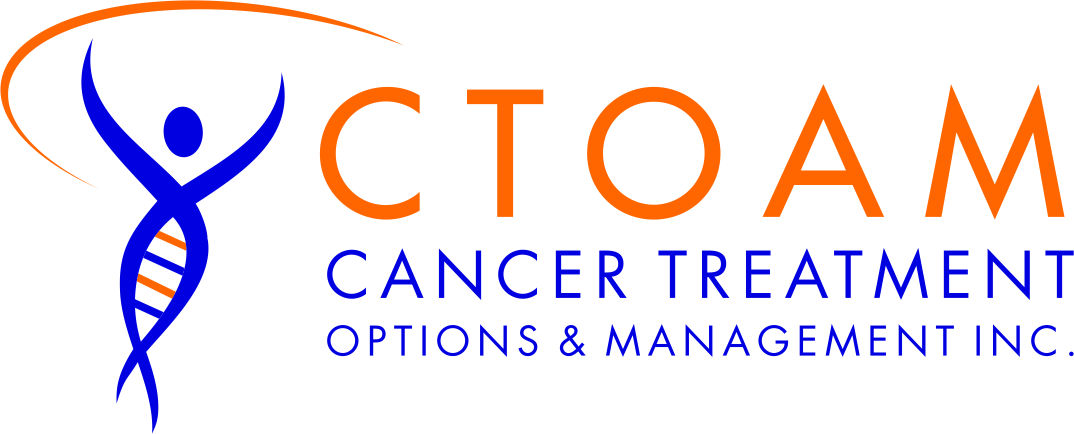
Get Your Questions Answered!
Discover how you can get better cancer treatment
Book a free 30-min Cancer Care Strategy Session
"I can’t tell you how much your support means to me. My call today with you was invaluable. You came into our lives at the perfect time. It’s rare to just be able to talk without a sales pitch. I could tell that my needs were more important." - Diane
Discover how you can get better cancer treatment! Get your questions answered now
Newest Treatments for Malignant Pleural Mesothelioma
This article is a very brief overview of two new treatment options that are showing enhanced life-expectancy over that of standard treatment alone.
Malignant Pleural Mesothelioma (MPM) is the most common type of mesothelioma, with past asbestos exposure representing the major risk factor. While the search for new therapies that target the genes and processes driving MPM has been slow, two new approaches are showing significant improvements over standard treatment in clinical trials. Best of all, these treatments are immediately available to cancer patients.
Before we discuss these enhanced treatment options, we’ll first briefly explore two key aspects of MPM progression
- Angiogenesis
- Epigenetic Regulation

What is Angiogenesis?
You’ve likely heard of angiogenesis. It’s the physiological process that tumours use to recruit new blood vessels in order to sustain their continual growth. They do this by manipulating the over-expression of genes that initiate and direct the growth of new, leaky blood vessels from existing ones. This new supply of blood not only allows the tumour to grow, but also provides a mechanism for the tumour cells to metastasize (travel through the body).
The process of angiogenesis is governed by its own unique combination of genes, separate from those involved in the normal formation of new blood vessels (a process known as vasculogenesis). This, it turns out, provides us with an opportunity for successful treatment through the targeting of these unique gene combinations.
Vascular Endothelial Growth Factors
One of the most specific and critical regulators of angiogenesis is the family of vascular endothelial growth factors (VEGFs), which regulate endothelial proliferation (the formation of new blood vessels), blood vessel permeability, and survival. In MPM, over-expression of VEGF is common and correlates with lower remission rates and reduced overall patient survival.
Clearly, effectively targeting VEGFs would result in limiting the blood supply to tumours thus successfully prohibiting their growth. And that’s just what we are seeing in current clinical trials. (More on that in a bit.)

What is Epigenetic Regulation?
A significant development in MPM treatment involves studies that focus on manipulating the processes of gene regulation, commonly referred to as epigenetic regulation. In MPM, tumour suppressor genes (the genes that, when functioning properly, naturally prohibit the growth of tumour cells) are silenced due to three key forms of epigenetic regulation:
- Removal of acetyl groups by histone deacetylases (HDACs);
- Inhibition of histone acetyltransferases (HATs), which add acetyl groups;
- Addition of methyl groups by DNA methyltransferases (DNMTs)
In MPM, the over-expression of HDACs coupled with the inhibition of HATs is considered a key process that leads to disease progression. The over-expression of DNMTs occurs in most cancers.

Benefits for Cancer Treatment
The benefit of targeting epigenetic processes is that they are reversible.
- How it Works: Unlike a mutated gene which cannot be reactivated, it is possible to reactivate tumour suppressor genes that have been silenced by epigenetic processes. Thus, effective treatment must include some process whereby tumour suppressor genes are supported to maintain their function and reactivated in cases where they have already been silenced.
- Clinical Trials: To this end, there are numerous clinical trials currently exploring the use of unique combinations of drugs to inhibit the silencing of tumour suppressor genes and to stop the flow of blood to tumours. Current clinical trials using HDAC and VEGF inhibitors are showing significant benefits in patient survival. For example, Vorinostat, an inhibitor of HDACs, has recently been shown to be beneficial for advanced mesothelioma patients whose cancer has progressed after standard chemotherapy.
The continued development and incorporation of these new drugs as part of standard treatment will undoubtedly be realized over the next few years. In the meantime, there are some very simple and effective natural measures that you can take immediately that will directly and powerfully influence the growth of cancer.
While clinical trials provide the basis for current molecular-targeted therapies, plant phytochemicals (aka nutraceuticals) provide an exciting option as an additional means of gene regulation.
Science has identified the following nutraceuticals as having a significant effect in slowing the mechanisms involved in MPM progression. Thus it is imperative, as part of your treatment protocol, that you ensure these substances are a part of your daily diet in the appropriate combinations.

Nutraceuticals that Affect Epigenetic Regulation and Angiogenesis
The following section is a list of nutraceuticals that have been shown to directly affect epigenetic regulation and angiogenesis in various cancers.
- In order to inhibit DNMTs to maintain tumour suppressor gene function, we must consume the following foods:
- Apigenin (Parsley, Thyme)
- Curcumin (Tumeric, Ginger, Mustard)
- EGCG (Green Tea, Nutmeg)
- Genistein (Soy)
- Resveratrol (Red Wine, Grape Skins)
- Sulforaphane (Broccoli, Brussels Sprouts, Cabbages)
- In order to activate HATs to reactivate tumour suppressors, we must regularly consume these foods:
- Curcumin (Tumeric, Ginger, Mustard)
- EGCG (Green Tea, Nutmeg)
- Genistein (Soy)
- In order to inhibit VEGFs to prevent further angiogenesis, we must ensure that these substances are a part of our daily diet:
- Curcumin (Tumeric, Ginger, Mustard)
- EGCG (Green Tea, Nutmeg)
- 6-Gingerol (Ginger)

Nutraceutical Diets Enhance Cancer Treatment Outcomes
There are many molecular pathways and genes involved in MPM; we have explored just a few above. However, including a daily diet of the nutraceuticals listed above will go a long way to improve your statistical chances for remission and disease prevention, as these nutraceuticals are revealing themselves to be significant in the treatment and prevention of many forms of cancer.
Given the success of current clinical trials being conducted using molecular-targeted therapies, this is also an important avenue to consider as an adjunct to standard treatment. Many clinical trials can be accessed from your hometown through your current treatment specialist, after a brief registration and testing process.
Please remember that it’s essential to talk with your doctor before considering any changes to your diet. While these nutraceuticals typically enhance any standard therapy, they can interfere with prescription drugs.

The article was written by with member of our Medical Services Team and first published June 27, 2011.
If you’d like more information on nutraceuticals for cancer treatment, or to have a personalized nutraceutical diet prepared for you, contact us! Register for a Precision Second Opinion to discover how we can help you to reduce stress and dramatically increase treatment success. Our cancer research and patient advocacy experts are also happy to consult with your treatment team to share information on the newest enhanced treatment options and clinical trial access.
Get Your Questions Answered!
Discover how you can get better cancer treatment
Book a free 30-min Cancer Care Strategy Session
"I can’t tell you how much your support means to me. My call today with you was invaluable. You came into our lives at the perfect time. It’s rare to just be able to talk without a sales pitch. I could tell that my needs were more important." - Diane
Discover how you can get better cancer treatment! Get your questions answered now
Sign Up for Our Newsletter
Get the latest advancements in cancer care delivered straight to your inbox each month!
Beat cancer faster and prevent cancer recurrence
Discover the newest, leading-edge advancements in cancer care...